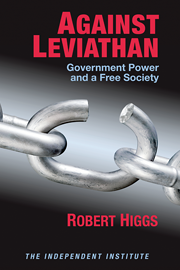It’s not easy being an economist. Besides having to endure those tired jokes about how a thousand economists laid end to end still don’t reach a conclusion, we economists have to fight the same battles again and again, no matter how many times we’ve won them. The recent fuss over raising the minimum wage is a good example.
You don’t need a Ph.D. Just imagine yourself as the owner of a business. Should you hire another worker? Well, doing so makes economic sense only if, all things considered, it increases your net income. When employers expect that hiring a worker will be worthwhile, they hire; when they expect that firing a worker will be worthwhile, they fire; otherwise, they stay put.
If employers have made all their adjustments and the government then requires that they pay certain workers more, the effect can only be that some workers will no longer be worthwhile to employ. Of course, most workers will not be affected, because they were already earning more than the new legal minimum.
Workers whose productivity is very low will be affected. This group comprises those with little or no job experience or skill -- teenagers, new entrants to the labor market, high-school dropouts, people who don’t speak English. Some of them are worthwhile to hire at $4.25 an hour but not at $5.15.
No study can overturn this economic logic. Economists David Card and Alan Krueger have been cited repeatedly by commentators denying the employment-curtailing effect of raising the minimum wage, but the Card-Krueger study does not float. A follow-up investigation by David Neumark and William Wascher for the National Bureau of Economic Research showed that Card and Krueger collected data incorrectly.
Polls showing that a large majority of the public favors raising the minimum wage only confirm rampant economic ignorance. When asked to consider that raising the minimum wage "might reduce the number of jobs available for workers with limited skills," only 46 percent of respondents to a Washington Post poll last April still supported the measure. Politicians rely on the public’s ignorance. Some have resorted to demagoguery by comparing the earnings of minimum-wage workers with those of corporate CEOs. But can we justify kicking a kid off the bottom rung of the job-experience ladder because corporate executives make millions? Do we really display compassion for the poor by outlawing the jobs some of them hold? Is it better for a person to hold a low-wage job or to live on welfare or drug-dealing?
Labor Secretary Robert Reich fosters the misunderstanding by claiming that 40 percent of minimum-wage workers are the "sole breadwinners in their family." He does not mention that 57 percent of minimum-wage workers are single individuals, many of them teenagers or college students living with parents. Fewer than 3 percent of workers with wages below $5.15 are single parents.
A group of 101 economists, led by such left-liberal luminaries as Lawrence Klein, James Tobin, and Kenneth Arrow, recently issued a statement supporting the proposed increase of the minimum wage and declaring that the effect on employment would be insignificant. Some economists are always willing to sell their scientific souls for a mess of partisan political pottage. Of course, because total employment tends to grow and because inflation diminishes the real value of a fixed minimum wage, a moderate increase of the minimum wage does not prompt employers to fire millions of workers. Nevertheless, employment will be much lower after employers have made their adjustments than it otherwise would have been.
If raising the minimum wage alleviates poverty without causing job losses, as the left-liberals claim, why stop at $5.25? Make the minimum wage $50 per hour and really wipe out poverty! When the proposal takes this form, its absurdity becomes transparent. But the same logic applies to the proposed 90-cent increase.
The major supporters of this measure are economically illiterate do-gooders and labor unions. Ever since the first minimum-wage laws were enacted in the 1930s, unionists have supported raising the minimum wage. Highly paid unionists gain when labor costs, and therefore product prices, are raised for firms selling products that compete with those sold by unionized firms. President Clinton, the AFL-CIO, and Democrats in Congress understand this basic economic relationship and act accordingly.
Republicans fear that opposition to raising the minimum wage makes them appear insensitive to the needs of the poor. But the public, including the poor, would be better served if members of Congress rested their case on economic reality. The best minimum wage is neither $4.25 nor $5.15. It is none at all.



















